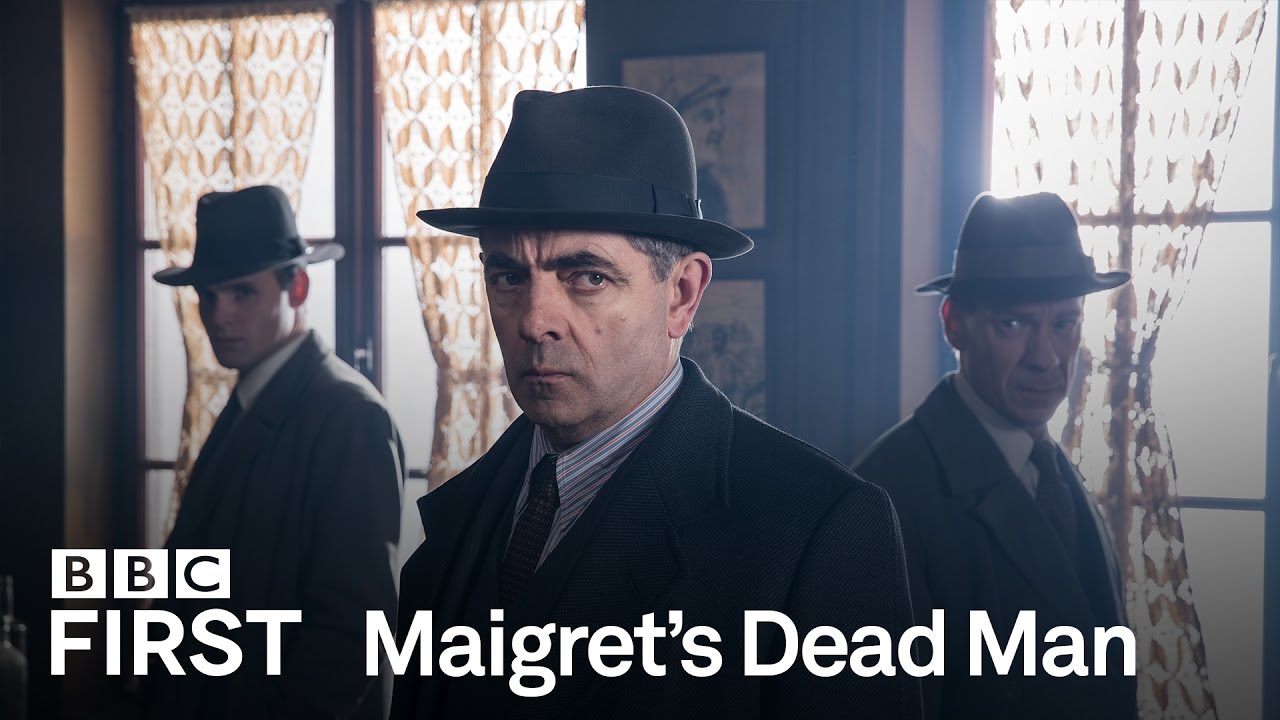This is the second episode of Maigret with Rowan Atkinson in the title role.
It is a masterclass in drama. Every scene is a tableau. Nothing is extraneous. The characters are rounded, not stereotypes. All the loose ends are resolved.
Marvellous.

When a crisis demands every police officer’s attention, Maigret insists on pursuing what seems in comparison a trivial case. Why? Because it has become almost personal.
A man in a panic had telephoned Maigret at the office saying that his wife, Nina, knew Maigret…. But he rings off, later to be found murdered. But Maigret knows no woman named Nina. Nor does he recognise the dead man when he is found. Who is Nina? And who is the victim?
This murder has the earmarks of a gangland slaying, and accordingly the powers that be see no reason to investigate it. But Maigret cannot let go. The victim personally asked for his help and Maigret feels obliged to do what he can now, even if it is too late.
What is refreshing about this, as with the first, instalment is the quiet plod of police work. There is no shouting, no histrionics, no flashes of insight, no scientific magic. Instead there is Just plod and more plod, piecing the puzzle together one part at a time. Even when Maigret is proved right, there is just a shrug without triumph.
Atkinson projects the authority, the calm, the impenetrable inwardness of a Maigret who has the strength to remain silent.
The direction is so confident and so demanding that viewers, well these viewers, were gripped by the slow movement, like a very slow tango with complicated steps that seem to go nowhere and yet fascinate.
All the heavy artillery in the opening scene soon makes sense. That the provincial police officer overreacts is hardly surprising. I also liked the respect accorded to him rather than the ridicule routinely written into most cop shows for such individuals. He is in over his head but who would not be so in the circumstances.
A quibble, however, in the novel Maigret slowly takes over Chez Albert. When he finds and gets in, he noses around and then it seems too late to go home and so he beds down there for the night intending to return to home and office in the morning. Then the next morning a punter knocks the door for coffee, and Maigret obliges. Then another punter arrives…. Margret soon calls Madame Maigret, Louise to the cognoscenti, to come and help out. He becomes a stand-in for the absent Albert.
It is the essence of Maigret to enter into the life of the victims and that is very well realised in this film in several ways, including this stay at Chez Albert, but also the betting slips and the lemon frappé. Atkinson performs these moments of abnegation well, very well, when his Maigret surrenders his persona to the milieu.
One powerful scene occurs when an exhausted and so far frustrated Maigret returns home to 54 Boulevard Richard Lenoir where an anxious Madame Maigret says a man is waiting for him in study. It is obvious at a glance that this visitor is one very hard man, a villain, but he has come to help, and after they talk, Maigret hands him a drink. It sounds like nothing to describe it but the humanity, the compassion is all the deeper for being unsaid. In other versions this scene would have handled much differently with some more, superfluous dialogue and perhaps a ponderosa and gratuituous witticism, as often in the Gambon versions, but not here.
Purest will say that Atkinson is not a doppelgänger for Maigret, and they would be right. He does not have the bulk of Maigret. Michael Gambon fit that bill perfectly.
I said no stereotypes at the outset, and that has to be qualified. The villains are one-dimensional. They are elemental forces that rip through the lives of those caught in their path.
The second to last scene with the bejewelled girlfriend of the instigator is far too pat for this viewer. A woman so easily satisfied with baubles would not bow to reality so readily.
